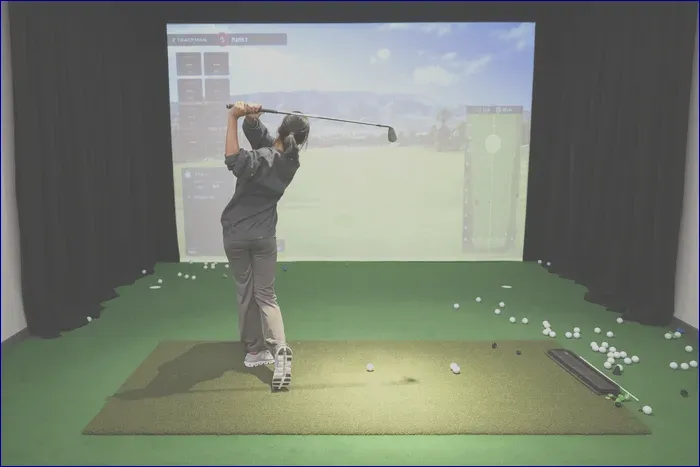In the realm of sports analytics, a riveting collaboration has commenced at Carnegie Mellon University (CMU), breathing new life into the precision of player performance through data. A trio of enterprising undergraduate students—Jackson Meehan, Emily Feng, and Rohan Patel—embarked on a groundbreaking project scrutinizing a staggering 11,924 golf shots, a monumental effort aimed at refining the skills and strategies of both the men’s and women’s golf teams.
Under the insightful mentorship of Professor Ron Yurko, a pivotal figure in CMU’s sports analytics landscape, the students deftly navigated through a trove of Trackman Golf Simulator data. This initiative not only highlights the profound complexities of statistical analysis but underscores the increasing relevance of data-driven decision-making in athletics. “Our goal has always been to elevate sports analytics education,” Yurko elaborated, “ensuring that students walk away with the skill sets that are indispensable to the industry.”
The unveiling of the Carnegie Mellon Sports Analytics Center (CMSAC)—set to launch at the upcoming annual conference—serves as a keystone in this edifice of innovation. “At CMU, we distinguish ourselves by not just providing a stellar academic foundation but also by forging pathways for students into the vibrant sphere of sports analytics,” Yurko stated passionately, illuminating his vision for nurturing future leaders in the field. This center, a veritable nexus of research and collaboration, promises to be a pivotal hub for aspiring data scientists.
As this ambitious endeavor unfolds, it marks a notable shift in the sports landscape post-Moneyball, drawing parallels to the ever-evolving methodologies that shape professional athletics today. The CMSAC stands as a testament to CMU’s dedication to pioneering transformative experiences and cultivating the next generation of sports data experts.
Housed within the esteemed walls of CMU, the CMSAC builds upon a rich legacy of analytical research, perpetually pushing the boundaries of what’s possible in athletics through innovative educational programs like the Carnegie Mellon Sports Analytics Camp. “We’ve witnessed an evolution; from humble beginnings, our efforts have blossomed,” remarked Rebecca Nugent, a leader in this robust network, reflecting on the lab’s growth from a select group engaged in impactful projects to a dynamic ecosystem fostering collaborations that catalyze student preparation for real-world challenges.
Indeed, last year’s NFL conference championships bore testament to this burgeoning success, with numerous alumni finding roles in pivotal positions across the league, reinforcing CMU’s reputation as a breeding ground for talent in the sports analytics arena.
The excitement burgeons as the CMSAC forges alliances with professional sports teams, leagues, and industry giants, each partnership enriching the fabric of sports analytics and unlocking doors for CMU graduates.
Alas, hark back a few years—when the seeds of this initiative were merely a conceptual dream. Dan Rodgers, at the helm of CMU’s golf teams, discovered himself awash in data with no compass to decipher its potential. Recognizing the wealth of insights nestled within the golf simulators, he elicitated collaboration from the stats-savvy team led by Nugent. Over six years, these students have delved deep into Trackman data, yielding revelations that have not only enhanced individual coaching strategies but also contributed to the men’s team clinching their first-ever NCAA Division III Championship.
“The analytical prowess these students bring to our programs is invaluable,” Rodgers conveyed, underscoring the transformative power of strategic insights on athletic performance.
With a blend of historical experience and forward-thinking initiatives, CMU’s foray into sports analytics epitomizes a vigorous and unyielding commitment to harnessing data for athletic excellence, paving the way for future triumphs on the field and beyond.

